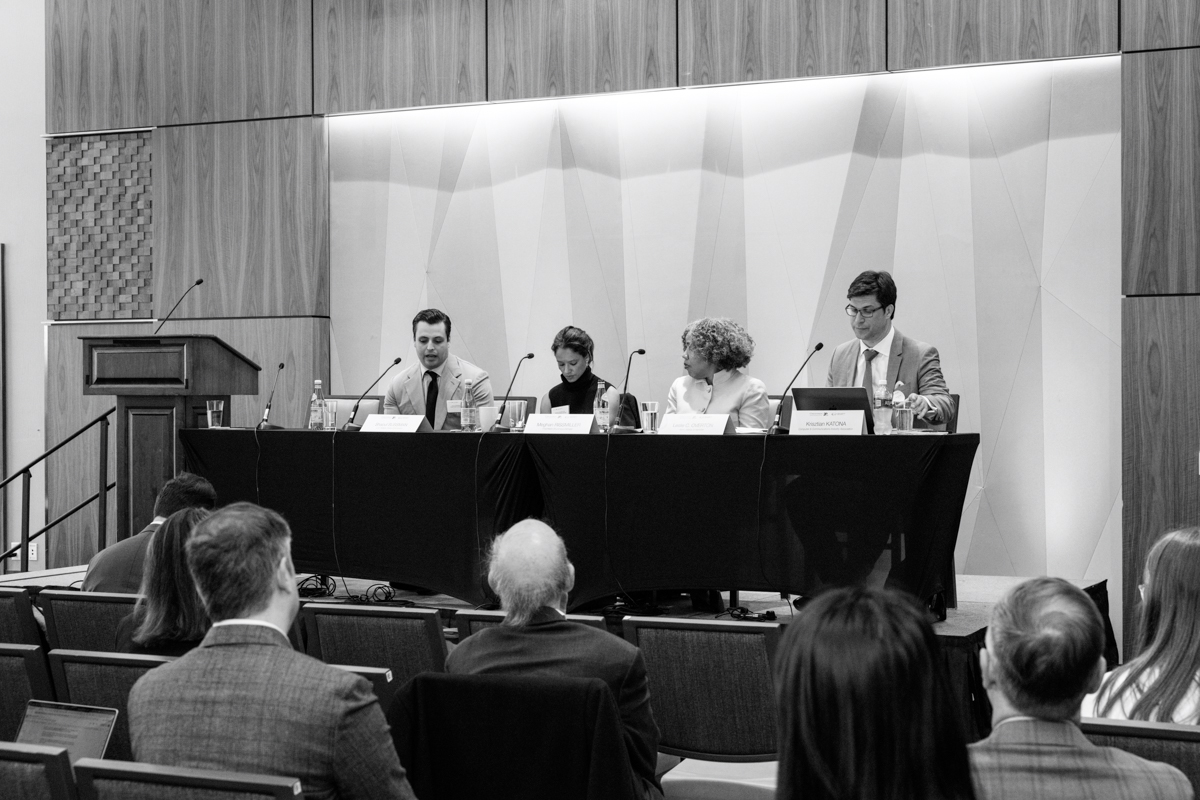ICYMI: Experts Discuss Latin American Perspectives on Competition and Regulatory Policy at CCIA Conference in Colombia
Antitrust luminaries from throughout the Americas gathered to discuss current challenges for competition and regulatory policy in Latin America and whether digitization of the economy calls for new antitrust rules. Following the recent Presidential elections, Colombia’s new administration is yet to name the head of the country’s Superintendence of Industry and Commerce (SIC), which provided an opportunity to review recent developments and challenges ahead in competition and regulatory policy for Colombia and Latin America. The Computer and Communications Industry Association (CCIA), together with the Colombian Association of Competition Law (ACDC), Pontificia Universidad Javeriana and its Center for Competition Law Studies (CEDEC), & the Colombian Research Initiative on Digital Competition and E-commerce (INCODI), co-hosted a conference in Bogota, Colombia addressing issues related to Competition and Regulatory Policy in a Changing Economy. Focusing on regional competition and regulatory issues, the conference brought together global experts to also discuss international convergence and divergence in the digital context.
Perspectives on Competition and Regulatory Policy in Latin America
Discussing the experience of Latin American authorities, SIC’s Chief Advisor John Marcos Torres outlined the agency’s recent enforcement actions and noted the importance of a multidisciplinary approach among policy areas for the future. Alexandre Cordeiro Macedo, President of Brazil’s Administrative Council for Economic Defense (CADE), noted that competition agencies are facing public pressure to deal with issues that are outside their remit. “Labor rights, sustainability, and fiscal issues should not be mixed with competition.”
Both Cordeiro, and Carolina Pardo, Partner at Baker McKenzie Colombia, underlined the importance of learning from international developments while also patiently waiting to see how the European and other international examples unfold. Regarding ex ante regulation, Cordeiro argued that previous Brazilian administrations tended to rely heavily on regulation. However, from his point of view, regulatory bureaucracy hurts the economy more than it helps. More recently, Brazil has initiated deregulation of different industries, which Cordeiro strongly supports. Pardo added that before applying any regulatory measures, policymakers should first understand the political circumstances of each country. She stressed that the antitrust rules don’t necessarily need to change, but the important question is how we are going to adapt existing measures. She also emphasized that the overdue appointment of the Colombian Superintendent is causing unease in the business sector, which she hopes will be addressed in the very near future. Carlos Esguerra, Partner at Bermudez & Esguerra, strongly agreed with the need to appoint the new Superintendent at the earliest opportunity.
Alfonso Miranda, Director of CEDEC and Carlos Uribe, Director of Law and Economics Departments of Law Faculty at Javeriana University, underscored the importance of having a more independent competition authority in Colombia. Professor Uribe expressed concerns that SIC is both the investigator and judge in antitrust cases, and stressed the urgent need to reform the agency’s structural design. By contrast, Juan Pablo Herrera, Deputy Superintendent for Competition Protection at the SIC, emphasized the agency’s focus on transparency. He noted that the agency has been working hard to guarantee that there is a clear separation between the Deputy of Competition Protection who opens the investigations and the Superintendent who decides the cases.
As part of his opening remarks, CCIA’s Vice President of Global Competition and Regulatory Policy, Krisztian Katona discussed what he referred to as “Colombia’s special responsibility” in the context of digital competition policy. “Colombia can and does serve as an example for other emerging economies in Latin America and globally, which makes it even more important to understand and reflect on the benefits, opportunities, and potential challenges competition in connected markets brings about.”
In his keynote remarks, William Kovacic, former FTC President and current Professor of Global Competition Law and Policy at George Washington University, explained that in the current regulatory environment competition agencies often find themselves under significant pressure as regulators have to develop national digital programs. Professor Kovacic expressed that “the concern is that if you are not really certain about where you are going, running faster is not necessarily a better strategy.” To address some of these issues, he underscored the importance of deeper interagency policy integration with a regional focus.
Competition Developments in Europe and the U.S.
From a European and UK perspective, Ioannis Kokkoris, Professor of Competition Law and Economics at Queen Mary University, acknowledged that the EU’s Digital Markets Act (DMA) carries some benefits, but expressed concern about its implementation, arguing that DG Competition has so far been a competition rather than a regulatory authority and will need to ensure it adopts the appropriate approach to enforce an ex ante regulation. He also voiced his potential concerns regarding the risk of double jeopardy arising from a concurrent investigation by a European national competition authority under unilateral conduct rules and by the EU Commission based on the DMA. Regarding the UK, Professor Kokkoris stressed that the UK’s Competition and Markets Authority (CMA) has heavily invested in in-house expertise on data assessment and conducted a number of market studies in the digital sector. However, it still lacks the legislative tool as the bill has not received royal assent yet.
Turning to relevant developments in the United States, Katona mentioned that there are various legislative proposals in the U.S. Congress focusing on competition in digital and connected markets. He noted that, although many of these bills use the word competition in their name, they are in fact disguised regulation, and many of the proposals include bans on self-preferencing and on mergers and acquisitions for companies over a particular size. By restricting and potentially banning these business activities for covered companies, Katona warned that the U.S. bills would discourage firms from bringing new products to market, which in turn would harm consumers and innovation. Regarding ex ante regulation, he underscored that many of the potential concerns currently discussed, for example online harms, are not competition issues and are not within the competence of competition agencies. Finally, he cautioned against relying on international regulatory experiments and highlighted that new regulation should only be introduced after a comprehensive analysis of its costs and benefits and based on sufficient empirical evidence. He also cited a recent study by the National Economic Research Associates (NERA) that found that the U.S. antitrust bills would cost the U.S. economy up to $319 billion, which would be passed on to consumers in the form of higher prices.
A recording of the event and a full list of the panelists can be found here.









